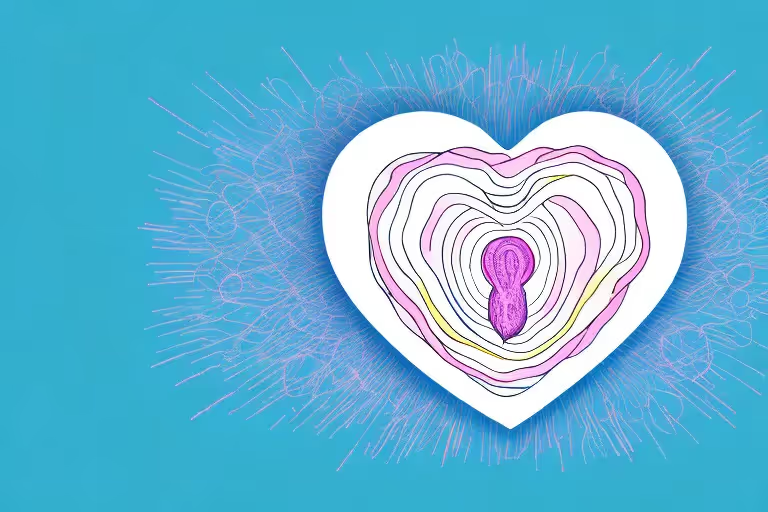Christian meditation is a practice that has been around for thousands of years, with origins dating back to early Christianity. Over time, various forms of Christian meditation techniques have emerged, each with its unique approach and benefits. If you're looking to improve your health, enhance your focus, or deepen your spiritual growth, then Christian meditation techniques may be just what you need.
Understanding Christian Meditation
The term "Christian meditation" refers to a set of practices that involve focusing one's thoughts and attention on God, the Bible, and other Christian teachings. In contrast to eastern meditation practices that aim to empty the mind, Christian meditation aims to fill the mind with thoughts and reflections that are consistent with Christian teachings.
At its core, Christian meditation techniques are rooted in the belief that God is present in every aspect of our lives. Through meditation, we can connect with God's presence and deepen our spiritual relationship with Him.
The Origins of Christian Meditation
The practice of Christian meditation dates back to the earliest days of Christianity. The early church fathers, including St. Augustine and St. John Cassian, were proponents of Christian meditation and helped to establish the practice within the Christian tradition. Over time, various forms of Christian meditation techniques emerged, including centering prayer, Lectio Divina, Ignatian Meditation, and Taizé prayer.
Centering prayer is a form of Christian meditation that involves sitting in silence and focusing on a single word or phrase that represents God's presence. This technique was developed in the 1970s by Trappist monk Thomas Keating and has since become a popular form of Christian meditation.
Lectio Divina, which means "divine reading" in Latin, is a form of Christian meditation that involves reading a passage from the Bible and reflecting on its meaning. This technique was developed in the 12th century by the Carthusian monk Guigo II and is still widely practiced today.
Ignatian Meditation is a form of Christian meditation that was developed by St. Ignatius of Loyola, the founder of the Jesuit order. This technique involves using one's imagination to place oneself in a scene from the Bible and reflecting on its meaning.
Taizé prayer is a form of Christian meditation that involves singing simple, repetitive songs and chants that are designed to help participants focus on God's presence.
The Difference Between Christian and Eastern Meditation
While Christian meditation and eastern meditation share some similarities, they have distinctive differences that set them apart. For instance, while eastern meditation aims to empty the mind of thoughts, Christian meditation aims to fill the mind with thoughts and reflections that are consistent with Christian teachings. Additionally, Christian meditation often involves the use of Scripture and prayer to deepen one's spiritual connection with God.
Another key difference between Christian and eastern meditation is the focus on personal relationship with God. In Christian meditation, the goal is to deepen one's relationship with God and to become more aware of His presence in one's life. In contrast, eastern meditation often focuses on achieving a state of enlightenment or detachment from the physical world.
Furthermore, Christian meditation often involves community and fellowship with other believers. Many Christian meditation practices are done in groups or in the context of worship services, providing opportunities for believers to connect with one another and to support each other in their spiritual journeys.
Types of Christian Meditation Techniques
Christian meditation is a practice that has been around for centuries. It involves focusing one's attention on God and His message, and can be done in a variety of ways. Here are some of the most popular types of Christian meditation techniques:
Centering Prayer
Centering prayer is a form of Christian meditation that involves sitting in silence and focusing one's attention on a chosen word or phrase. The word or phrase serves as a "sacred symbol" that helps to quiet the mind and bring the meditator into a deeper awareness of God's presence. This technique was developed by Father Thomas Keating, a Trappist monk, in the 1970s. Since then, it has become a popular form of Christian meditation, especially in the United States.
During Centering Prayer, the meditator sits in a comfortable position with their eyes closed. They choose a word or phrase that represents their intention to be in the presence of God. This word or phrase is repeated silently throughout the meditation, helping to quiet the mind and focus the attention. The goal of Centering Prayer is to let go of thoughts and distractions, and simply be present with God.
Lectio Divina
Lectio Divina is a form of Christian meditation that involves reading and reflecting on Scripture. The process involves four stages: reading, meditation, prayer, and contemplation. This technique was developed by the early Christian monks, and has been used for centuries as a way to deepen one's understanding of God's message.
During Lectio Divina, the meditator chooses a passage from Scripture and reads it slowly and carefully. They then meditate on the passage, reflecting on its meaning and how it applies to their life. After this, they offer a prayer to God based on their reflections. Finally, they enter into a period of contemplation, simply being present with God and allowing His message to sink in.
Ignatian Meditation
Ignatian Meditation is a form of Christian meditation that was developed by St. Ignatius of Loyola, the founder of the Jesuit order. This technique involves using one's imagination to place oneself in a scene from Scripture and interact with the characters and events. The goal of Ignatian Meditation is to deepen one's understanding of God's message and foster a deeper connection with Him.
During Ignatian Meditation, the meditator chooses a passage from Scripture and imagines themselves as a part of the scene. They use their senses to fully immerse themselves in the experience, interacting with the characters and events as if they were really there. This technique can be especially powerful for those who have a strong imagination and enjoy visualizing stories.
Taizé Prayer
Taizé prayer is a form of Christian meditation that involves chanting and repetitive singing of meditative songs. This technique was developed by a monastic community in Taizé, France, and has gained popularity around the world. The repetitive nature of the songs helps to quiet the mind and bring the meditator into a deeper awareness of God's presence.
During Taizé Prayer, the meditator sings simple, repetitive songs that are meant to be meditative and calming. The songs are usually sung in a group, and are accompanied by simple instruments like a guitar or piano. The goal of Taizé Prayer is to create a peaceful atmosphere that allows the meditator to connect with God in a deep and meaningful way.
The Benefits of Christian Meditation
Spiritual Growth and Connection
One of the primary benefits of Christian meditation is the opportunity to deepen one's spiritual connection with God. By focusing one's attention on God's word, meditators can open themselves up to experiencing spiritual growth and revelation that can enhance their relationship with God. Christian meditation can also help to foster a deeper sense of peace, joy, and contentment in one's life.
Mental Health and Stress Relief
Research has shown that Christian meditation can be an effective tool for promoting mental health and reducing stress. By quieting the mind and focusing on God's presence, meditators can reduce their anxiety and experience a greater sense of calm and inner peace.
Physical Health Benefits
Christian meditation has also been shown to have physical health benefits. For example, studies have shown that meditation can help to lower blood pressure, reduce chronic pain, and improve overall immune function. By reducing stress in the body, Christian meditation can help to promote optimal wellness in all areas of one's life.
Enhanced Focus and Clarity
Christian meditation can also be an effective tool for improving one's focus and mental clarity. By training the mind to stay focused on a specific word or phrase, individuals can strengthen their cognitive abilities and improve their ability to concentrate on tasks. This improved focus can help to enhance one's performance at work, school, or in other areas of life.
Integrating Christian Meditation into Daily Life
Christian meditation is a powerful practice that can help individuals connect with God and find peace in their daily lives. While it may seem daunting to incorporate meditation into one's already busy schedule, there are simple steps that can be taken to make it a regular part of daily life.
Creating a Meditation Space
One of the keys to successfully integrating Christian meditation into one's daily life is creating a designated space for meditation. This space should be quiet, comfortable, and free from distractions, providing a conducive environment for meditation and reflection. It can be as simple as a corner of a room with a comfortable chair or cushion, or as elaborate as a full meditation room with candles, incense, and calming decor.
When creating a meditation space, it's important to consider the senses. Soft lighting, calming scents, and peaceful music can all help create a relaxing atmosphere for meditation. It's also helpful to keep any distractions, such as phones or other devices, out of the space to minimize interruptions.
Establishing a Routine
Another important aspect of integrating Christian meditation into daily life is establishing a routine. This involves setting aside a specific time each day to engage in meditation, whether it's in the morning, evening, or another time that works best for you. Regular practice is key to experiencing the full benefits of Christian meditation.
When first starting out, it may be helpful to start with just a few minutes of meditation each day and gradually increase the time as it becomes more comfortable. It's also important to be patient with oneself and not get discouraged if it takes time to establish a regular routine.
Combining Meditation with Scripture Study
Finally, Christian meditation can be enhanced by combining it with Scripture study. By reading and reflecting on Scripture, and then meditating on the words and principles contained therein, one can deepen their understanding of God's message and foster a greater connection with Him.
When selecting a passage of Scripture to meditate on, it can be helpful to choose a shorter passage and read it several times before beginning to meditate. As you meditate on the words, reflect on their meaning and how they apply to your life. Allow yourself to be open to any insights or revelations that may come to you during this time.
Combining meditation with Scripture study can also be a great way to start or end the day, providing a sense of peace and connection with God as you go about your daily routine.
Conclusion
Christian meditation techniques can be a powerful tool for enhancing one's spiritual growth, improving mental and physical health, and enhancing overall well-being. By exploring various forms of Christian meditation and integrating them into daily life, individuals can experience first-hand the transformative effects of this ancient practice.
Aura is Your All In One App for Meditation, Mindfulness Wellbeing
Find peace every day with one app for your whole well-being. There is no one-size-fits-all solution to mental well-being. Aura is the first all-in-one wellness app that learns how to best help you. Discover an endless library of expert-created tracks for your well-being, all taught by the world’s best coaches, therapists, and storytellers. With Aura's personalized recommendations, you can find peace every morning, day and night.



.webp)






.avif)

%20(1).avif)


.avif)
.avif)
.webp)


.avif)


















































































































.avif)

















.svg)









